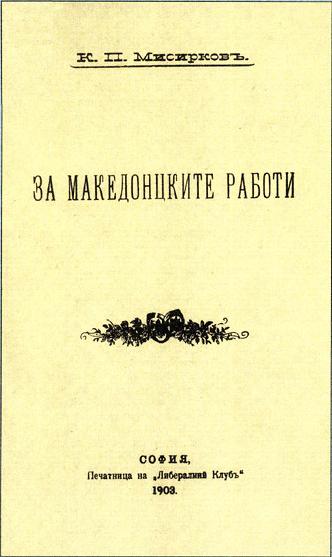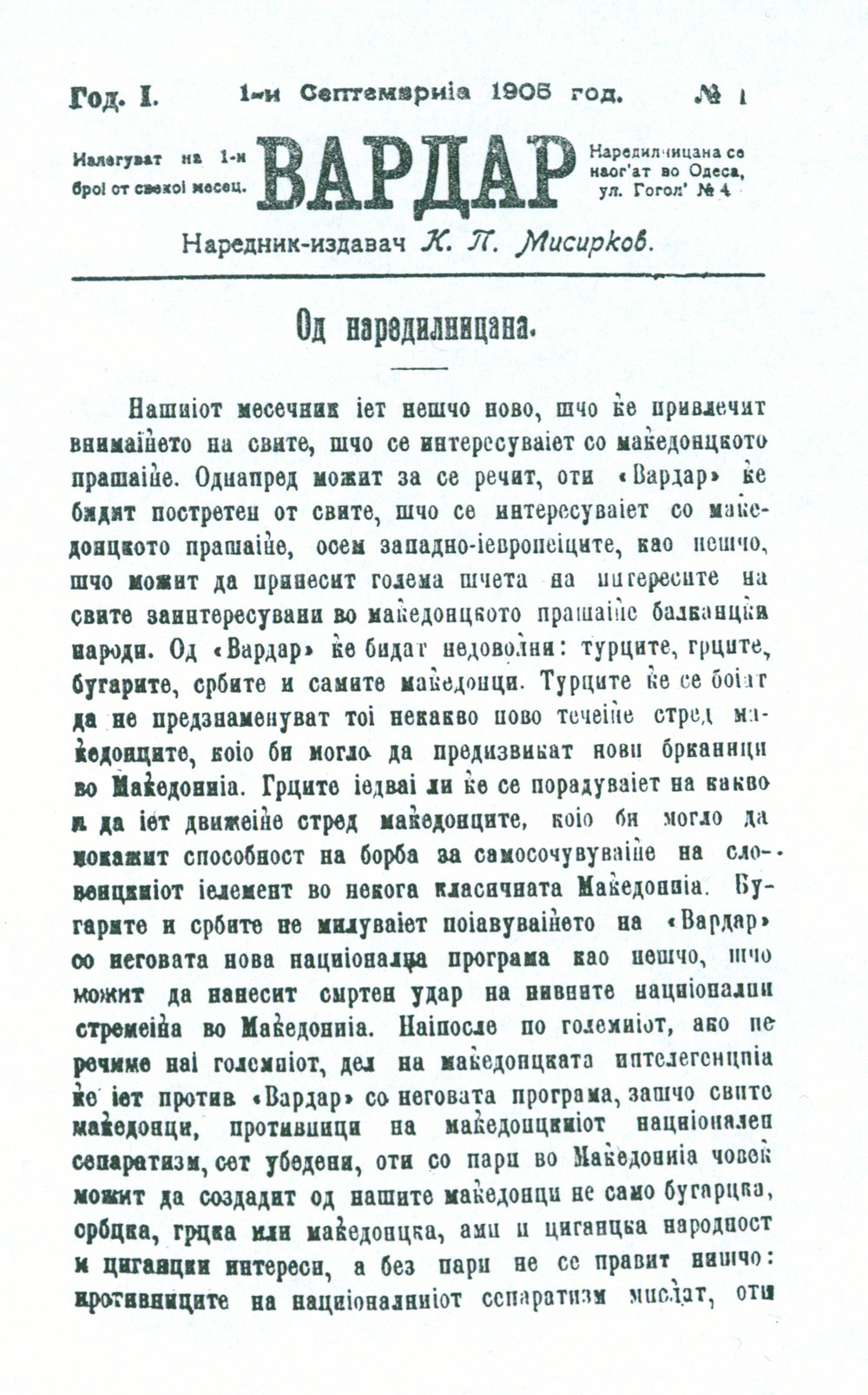Macedonian Literature on:
[Wikipedia]
[Google]
[Amazon]
Macedonian literature () begins with the Ohrid Literary School in the



Macedonian literature from 14 c.
* {{Authority control
First Bulgarian Empire
The First Bulgarian Empire (; was a medieval state that existed in Southeastern Europe between the 7th and 11th centuries AD. It was founded in 680–681 after part of the Bulgars, led by Asparuh of Bulgaria, Asparuh, moved south to the northe ...
(nowadays North Macedonia
North Macedonia, officially the Republic of North Macedonia, is a landlocked country in Southeast Europe. It shares land borders with Greece to the south, Albania to the west, Bulgaria to the east, Kosovo to the northwest and Serbia to the n ...
) in 886. These first written works in the dialects of the Old Church Slavonic
Old Church Slavonic or Old Slavonic ( ) is the first Slavic languages, Slavic literary language and the oldest extant written Slavonic language attested in literary sources. It belongs to the South Slavic languages, South Slavic subgroup of the ...
were religious. The school was established by St. Clement of Ohrid. The Macedonian recension
Recension is the practice of editing or revising a text based on critical analysis. When referring to manuscripts, this may be a revision by another author. The term is derived from the Latin ("review, analysis").
In textual criticism (as is the ...
at that time was part of the Old Church Slavonic
Old Church Slavonic or Old Slavonic ( ) is the first Slavic languages, Slavic literary language and the oldest extant written Slavonic language attested in literary sources. It belongs to the South Slavic languages, South Slavic subgroup of the ...
and it did not represent one regional dialect but a generalized form of early Eastern South Slavic
The Eastern South Slavic dialects form the eastern subgroup of the South Slavic languages. They are spoken mostly in Bulgaria and North Macedonia, and adjacent areas in the neighbouring countries. They form the so-called Balkan Slavic linguistic ...
. The standardization of Macedonian in the 20th century provided good ground for further development of the modern Macedonian literature and this period is the richest one in the history of the literature itself.
History
Macedonian was not officially recognized until the establishment of Macedonia as a constituent republic of communist Yugoslavia in 1945. Krste Petkov Misirkov in his ''Za Makedonckite raboti'' (1903; ''On the Macedonian Matters'') and in the literary periodical ''Vardar'' (established 1905) helped to create the foundations of Macedonian language and literature. These efforts were continued after World War I by Kosta Racin, who wrote mainly poetry in Macedonian and propagated its use through the literary journals of the 1930s. Racin's poems in ''Beli mugri'' (1939; White Dawns), which include many elements of oral folk poetry, were prohibited by the government of pre-World War II Yugoslavia. Some writers, such as Kole Nedelkovski, worked and published abroad because of political pressure. In addition in the year 1925 theGreek government
The Government of Greece (Greek language, Greek: Κυβέρνηση της Ελλάδας), officially the Government of the Hellenic Republic (Κυβέρνηση της Ελληνικής Δημοκρατίας) is the collective body of the Gre ...
issued a schoolbook called the Abecedar in the Lerin dialect in order to educate the Slavic speakers of Greek Macedonia
Slavic speakers are a minority population in the Geographic regions of Greece, northern Greek region of Macedonia, Greece, Macedonia, who are mostly concentrated in certain parts of the Peripheries of Greece, peripheries of West Macedonia, West ...
.
Periods
The Macedonian Academy of Sciences and Arts divides Macedonian literature into three large periods, which are subdivided into additional ones. The periods of the Macedonian literature are: * Old Macedonian literature – 9th to 18th centuries ** From the introduction of Christianity until the Turkish invasions – 9th to 14th centuries ** From the Turkish invasions until the beginning of the 18th century * New Macedonian literature – 1802 to 1944 ** period of national awakening ** revolutionary period ** inter-war literary period * Modern Macedonian literature – 1944 – todayModern literature
After World War II, under the new Yugoslav SR Macedonia, Blaze Koneski and others were charged with the task of standardizing Macedonian as the official literary language. With this new freedom to write and publish in its own language, SR Macedonia produced many literary figures in the postwar period. The Association of Writers of Macedonia, the country's largest and oldest association of writers, was established on 13.02.1947. Poetry was represented in the work of Aco Šopov, Slavko Janevski, Blaze Koneski, and Gane Todorovski. Janevski was also a distinguished prose writer and the author of the first Macedonian novel, ''Selo zad sedumte jaseni'' (1952; “The Village Beyond the Seven Ash Trees”). His most ambitious work was a cycle of six novels that deals with Macedonian history and includes ''Tvrdoglavi'' (1965; “The Stubborn Ones”), a novel articulating the Macedonian people's myths and legends of remembering and interpreting their history. Prewar playwrights, such as Vasil Iljoski, continued to write, and the theatre was invigorated by new dramatists, such as Kole Cašule, Tome Arsovski, and Goran Stefanovski. Cašule also wrote several novels. A main theme of his work is the defeat of idealists and idealism. His play ''Crnila'' (1960; “Black Things”) deals with the early 20th-century murder of anIMRO
The Internal Macedonian Revolutionary Organization (IMRO; ; ), was a secret revolutionary society founded in the Ottoman territories in Europe, that operated in the late 19th and early 20th centuries.
Founded in 1893 in Salonica, it init ...
leader by other Organization's activists and with the characters of both executioners and victim.
Among the best-known novelists and writers of prose were Stale Popov (''Krpen zivot'' (1953; “Darned life”)), Gjorgji Abadžiev (''Pustina'' (1961; “Desert”)) and Zivko Cingo, whose collections of stories Paskvelija (1962) and ''Nova Paskvelija'' (1965; “New Paskvelija”) are about an imaginary land where clashes and interactions between old traditions and revolutionary consciousness are enacted. His novel ''Golemata voda'' (1971; “The Great Water”), set in an orphanage, shows the grandness and sadness of childhood. Other notable writers include Petre M. Andreevski (''Pirej'' (1980; “Pirej”)), Vlada Uroševic (''Sonuvacot i prazninata'' (1979; “The Dreamer and the Emptiness”)), Jovan Pavlovski (''Sok od prostata'' (1991; “Prostate Gland Juice”)), Venko Andonovski (''Papokot na svetot'' (2000; “Navel of the World”)), Aleksandar Prokopiev (''Covekot so cetiri casovnici'' (2003; “The Man With Four Watches”)), and some of the leading playwrights were Jordan Plevnes (''Mazedonische zustände'' (1979; “Mazedonische zustände”)), Sashko Nasev (''Chija si'' (1991; “Who do you Belong to”)), and Dejan Dukovski (''Bure barut'' (1996; “The powder keg”)).
The diversity of themes and narrative styles among 21st-century writers has grown even more, and the list includes writers born in the period 1970s–1990s. Some of the most distinguished in this generation are: Goce Smilevski (''Sestrata na Sigmund Frojd'' (2007; “Freud's Sister”)), Lidija Dimkovska (''Rezerven zivot'' (2012; “A Spare Life”)), Slavcho Koviloski (''Sinot na kralot'' (2011; “The Son of the King”)), Nikola Madzirov (''Ostatoci od nekoe drugo vreme'' (2007; “Remnants of Another Age”)), Stefan Markovski (''Anatomija na bumbarot'' (2020; “The Bumblebee Anatomy”)), Rumena Bužarovska (''Mojot maz'' (2014; “My Husband”)), Petar Andonovski (''Teloto vo koe mora da se zivee'' (2015; “The Body One Must Live In”)), Nenad Joldeski (''Sekoj so svoeto ezero'' (2012; “Each with Their Own Lake”)), and others. The association of the country's writers became a member of the European Writers' Council on 04.06.2023, with Stefan Markovski giving the acceptance interview.
Notable works



See also
*Macedonian language
Macedonian ( ; , , ) is an Eastern South Slavic language. It is part of the Indo-European languages, Indo-European language family, and is one of the Slavic languages, which are part of a larger Balto-Slavic languages, Balto-Slavic branch. Sp ...
* History of the Macedonian language
* List of Macedonian writers
References
Further reading
* ''Makedonska književnost'' (“Macedonian Literature”). Tome Sazdov, Vera Stojčevska-Antić, Dragi Stefanija, Georgij Stalev, Borislav Pavlovski. Školska knjiga. Zagreb, 1988. (in )External links
Macedonian literature from 14 c.
* {{Authority control